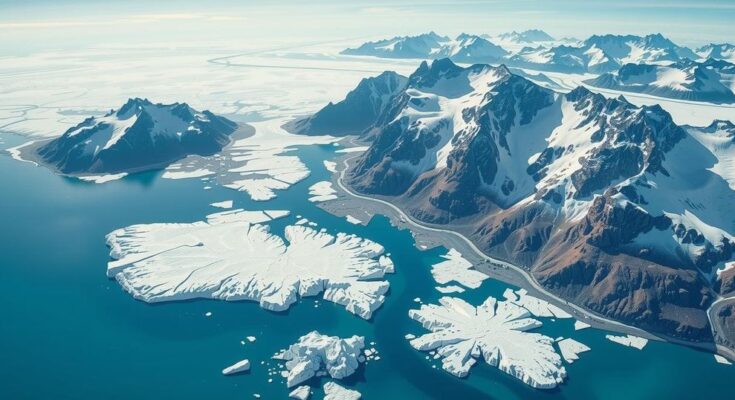The Greenland elections on March 11, 2025, are attracting global interest due to potential independence from Denmark and U.S. ambitions to acquire the territory. With concerns over foreign influence and internal debates on resource management, the elections could have far-reaching geopolitical implications.
Greenland’s impending elections on March 11, 2025, are garnering global attention, with about 40,000 voters selecting 31 parliamentarians. This heightened interest stems from broader geopolitical tensions, particularly regarding the island’s potential independence from Denmark and U.S. ambitions to acquire Greenland, an idea that has gained traction under President Trump.
President Trump has emphasized the strategic importance of Greenland due to its mineral resources and its military significance. The U.S. operates the Pituffik Space Base, pivotal for missile warnings and Arctic security. The prospect of acquiring resources such as oil, gas, and precious minerals, made more accessible by climate change, further fuels U.S. interest.
In the lead-up to the elections, external attempts to influence voter sentiment have raised concerns. Both Russia and China may seek to sway public opinion to serve their security interests in the Arctic region, as warned by Denmark’s national security service, PET. Previous instances of disinformation on social media have been noted, but experts believe their impact on elections may be limited.
Recent controversies, including reports of financial incentives from Trump’s supporters in Greenland and interactions between local politicians and U.S. officials, have amplified concerns over foreign interference. Despite these issues, Greenland’s parliament has implemented measures to restrict foreign donations to political parties.
The Greenlandic populace, consisting of around 57,000 individuals known as Kalaallit, is also motivated by issues beyond U.S. acquisitions, primarily regarding their mineral resources and foreign partnerships. The ongoing debate on independence from Denmark remains crucial, especially as Denmark provides significant financial support to the territory.
Prime Minister Mute Egede has articulated Greenland’s desire for independent governance, asserting that they do not wish to be assimilated by either the U.S. or Denmark. The overarching sentiment among Greenlanders leans towards independence from Denmark, though uncertainty persists about the timing and specifics. Experts suggest that the potential for U.S. influence will not diminish after the elections, indicating ongoing challenges for Greenlandic autonomy.
In summary, the upcoming elections in Greenland are set against a backdrop of geopolitical tension and a strong desire for independence from Denmark. The influence of external powers, particularly the United States, raises significant concerns about the integrity of the electoral process. Despite local enthusiasm for independence, uncertainty looms regarding the timeline and benefits of such a movement. As global interest intensifies, Greenland’s path forward remains complex and multifaceted.
Original Source: www.dw.com




